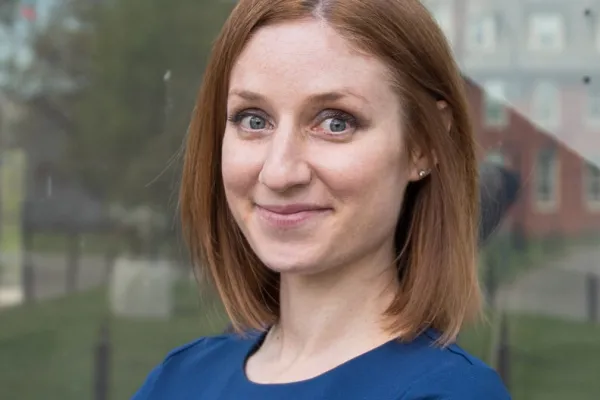Cannabis as Cure: Promise vs. Legality
Research & Inquiry

Published June 11, 2019
Anthropologist Caroline Melly’s research into medical marijuana as a potent treatment for neurological disease focuses on a growing network of lay people who are experimenting—often on their own—with cannabis as a remedy.
Against a backdrop of changing marijuana laws in this country, Melly is exploring the “scientific, legal and moral truths that emerge as patients and their families, entrepreneurs, pharmaceutical companies, researchers, lawmakers, activists and others experiment with cannabis as a neurological treatment,” she said.
Melly, an associate professor of anthropology, came to the topic of medical marijuana out of personal experience. Three years ago, her then 5-month-old son was diagnosed with a catastrophic and rare form of pharmaceutical-resistant epilepsy. She and her family learned—largely through informal social networks—that cannabis might be a promising therapy.
“As we were undergoing treatment for my son, I discovered a sort of underground world of medical cannabis, which was fascinating in part because so much of the scientific thinking about it was being driven by families and parents, and mothers in particular,” Melly said. “My research considers the recent spectacular rise of medical cannabis despite the legal prohibitions against it.”
What truly grounded her through the personal trials and uncertainty of dealing with her son’s health issues, she says, was her training as an anthropologist. “It helped me make sense of where we stood within a larger society,” Melly said. “What unites the discipline is the way we go about asking questions, the ways we try to turn our assumptions inside out to see what’s really there.”
Melly draws on preliminary ethnographic research she has conducted with so-called marijuana refugees, a large network of parents and caregivers who moved to Colorado specifically to seek legal access to cannabis. Her work builds on nearly three years of daily engagement within cannabis and neuro-centered communities, through online social media groups and face-to-face contact.
“One of the really fascinating things I found was that there was an increasingly large contingent of children with intractable, medically resistant, treatment-resistant epilepsy who were not finding any luck with pharmaceuticals, or with the ketogenic diet, which has been used for over half a century to treat medically resistant epilepsy,” Melly said. “Instead we are finding that medical cannabis was the best way forward.”
Melly, who is interested in the relationship between science and culture, is writing a book about her findings, with the working title Cannabis Cures: Ethnography at the Ends of Prohibition. At Smith, she teaches courses on globalization and transnationalism, belonging and citizenship, science and technology, and Africa and its diaspora.
A “fractured legal landscape” impedes progress toward better cannabis treatments, she said. “Federal [prohibition] conflicts with state law, specifically in Colorado, for instance,” she said. Consequently, private homes are deployed as legal and scientific laboratories.
Melly sees her research as a way to stand with the communities and families that are seeking answers about medical cannabis. “Cannabis science is being built from the bottom up—in intimate moments between mother and child, for instance, as well as in disability activist communities,” Melly said. “These are the families that are doing the very, very best they can,” she said. “And it is through these moments of tragedy and engagement that some of the science is being built. I want that story to be the one that others hear.”
Summer 2019 Smith Alumnae Quarterly